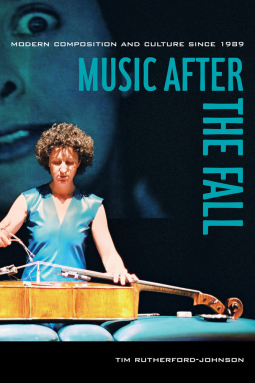
Music after the Fall
Modern Composition and Culture since 1989
by Tim Rutherford-Johnson
This title was previously available on NetGalley and is now archived.
Buy on Amazon
Buy on BN.com
Buy on Bookshop.org
*This page contains affiliate links, so we may earn a small commission when you make a purchase through links on our site at no additional cost to you.
Send NetGalley books directly to your Kindle or Kindle app
1
To read on a Kindle or Kindle app, please add kindle@netgalley.com as an approved email address to receive files in your Amazon account. Click here for step-by-step instructions.
2
Also find your Kindle email address within your Amazon account, and enter it here.
Pub Date Feb 01 2017 | Archive Date Apr 20 2017
Description
Music after the Fall is the first book to survey contemporary Western art music within the transformed political, cultural, and technological environment of the post–Cold War era. In this book, Tim Rutherford-Johnson considers musical composition against this changed backdrop, placing it in the context of globalization, digitization, and new media. Drawing connections with the other arts, in particular visual art and architecture, he expands the definition of Western art music to include forms of composition, experimental music, sound art, and crossover work from across the spectrum, inside and beyond the concert hall.
Each chapter is a critical consideration of a wide range of composers, performers, works, and institutions, and develops a broad and rich picture of the new music ecosystem, from North American string quartets to Lebanese improvisers, from electroacoustic music studios in South America to ruined pianos in the Australian outback. Rutherford-Johnson puts forth a new approach to the study of contemporary music that relies less on taxonomies of style and technique than on the comparison of different responses to common themes of permission, fluidity, excess, and loss.
Each chapter is a critical consideration of a wide range of composers, performers, works, and institutions, and develops a broad and rich picture of the new music ecosystem, from North American string quartets to Lebanese improvisers, from electroacoustic music studios in South America to ruined pianos in the Australian outback. Rutherford-Johnson puts forth a new approach to the study of contemporary music that relies less on taxonomies of style and technique than on the comparison of different responses to common themes of permission, fluidity, excess, and loss.
Advance Praise
“Tim Rutherford-Johnson is probably the most authoritative international chronicler of the composed music of our time, and in this book he manages the near-impossible feat of mapping a field that is changing by the day. He is a rigorous thinker, yet he avoids dogma and shows unexpected sympathies. What results is an indispensable work of intellectual passion.”—Alex Ross, author of The Rest Is Noise and Listen to This
“Studded as it is with just insights, Rutherford-Johnson’s book is even more remarkable—and valuable—for the perspectives it offers on the period since the climacteric of 1989. Here are some new tools for thinking, rethinking, and thinking on.”—Paul Griffiths, author of Modern Music and After
“It’s a sign that a book is a conversation changer when that book creates a need for its own existence. Music after the Fall is just such a radical rewriting of what we might require from a historical analysis of new music, taking an ecological approach that accounts for race, gender, technologies, and institutional and socioeconomic forces. A compelling and exhilarating read.”—Liza Lim, Professor of Composition, University of Huddersfield
“Studded as it is with just insights, Rutherford-Johnson’s book is even more remarkable—and valuable—for the perspectives it offers on the period since the climacteric of 1989. Here are some new tools for thinking, rethinking, and thinking on.”—Paul Griffiths, author of Modern Music and After
“It’s a sign that a book is a conversation changer when that book creates a need for its own existence. Music after the Fall is just such a radical rewriting of what we might require from a historical analysis of new music, taking an ecological approach that accounts for race, gender, technologies, and institutional and socioeconomic forces. A compelling and exhilarating read.”—Liza Lim, Professor of Composition, University of Huddersfield
Available Editions
| EDITION | Other Format |
| ISBN | 9780520283152 |
| PRICE | $29.95 (USD) |
| PAGES | 360 |



